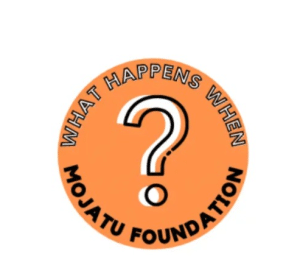Women & Girls
The “What Happens When…” series
The handbook of gender-based violence services we hope you’ll never have to use.
TW: This entire article discusses multiple forms of gender-based violence including SA and R*pe
The issue of violence against women has hit the headlines recently following the tragic death of Sarah Everard, but as most women know, this issue has been front page news for us long before this recent incident. Gender-based violence goes hand in hand with the experience of being a woman. An alarming study found that just 3% of women in the UK did not recall ever having experienced sexual harassment. Most of us will experience some degree of violence towards us and we can only hope that it is in a milder form. This is unacceptable but currently, quite simply our reality. This is an issue that affects women of all ages, races and backgrounds. Most women you know will have a story and that is a heart-breaking fact.
As women we are constantly modifying our behaviour, sometimes subconsciously, in an attempt to avoid harm. We are taught to wear bright clothing, to take the most populated route, to keep a key wedged between our fingers for protection. We do all these things and yet it is never enough. We are still harassed and attacked – daily. Women should be allowed to walk and run without fear, it is that simple. We should not have to “do the right things”; no matter where you are, how dark it is, whether you have had a drink – no one deserves to feel unsafe, it is unacceptable.
We know that violence occurs at home, behind closed doors. In fact, 1 in 3 women globally will be subjected to physical or sexual violence by an intimate partner at some point in their lifetime. In England and Wales, 2 women a week are killed by their partner and during 2020 as a result of lockdown, domestic attacks against women doubled between March and April in comparison to the previous ten years. Crucially, that is only the cases which were reported, we know many women are unable to come forward and many have lost faith in the systems which are meant to protect them.
In light of this, Mojatu is introducing a series entitled What Happens When, highlighting key services in the city of Nottingham you can turn to if you experience violence. At Mojatu we are committed to ending sexual violence on a global scale and challenging the damaging patriarchal structures that uphold the sexism we face on a daily basis. We must pressure our government to fix our system of justice to make reports unignorable and make misogyny illegal on a national scale. However, this is going to be a long road and sadly cannot and will not change overnight. Unlike COVID-19, violence against women cannot be stopped with a vaccine.
Therefore, it is likely that gender-based violence will be an issue we face for years to come and while it is terrible, statistically you may find yourself in need of help and support at sometime in your life.
We have looked for the best places to turn to so that you don’t have to. You are not alone and there are people who can help you. We must change how we treat women in our society but until we completely tackle the real and constant threat of violence, you can use What Happens When to access the support you need.
Kathryn Embree
Sources: World Health Organisation (WHO), UN Women UK and the British Medical Journal.
What Happens When….
The Topaz Centre
As part of the What Happens When series we spotlight The Topaz Centre and the services you can access from them.
About The Topaz Centre:
The Topaz Centre is a “Sexual Assault Referral Centre”.
They offer free support and practical help to anyone who has experienced sexual violence or abuse and lives in Nottinghamshire.
All healthcare professionals at Topaz are women (if you feel more comfortable with a man this can be arranged but may cause a small delay in receiving immediate care).
How does The Topaz Centre work?
Clients can assess Topaz in two ways:
Police and other professionals who may refer individuals
Self- referral pathway, in which the individual books an appointment.
If you are accessing the services as part of a police case we are provided with a “first account”, but if you come independently then Topaz will take a “full disclosure” which outlines what has happened. Topaz also offers the ability to write the account yourselves rather than having to verbally recount.
To self-refer please call the helpline or email:
0800 085 9993 and notts.sarc@nhs.net.
Topaz has a one-hour response time, therefore once calling up the helpline Topaz should be able to see you within one hour if this suits the individual. Topaz has a 24-7 service, when calling ‘out of hours’ (before 8am and after 8pm) it depends on the nature of the situation and the level of medical need to determine the most appropriate time. When attending the Topaz Centre you will be seen by one Nurse and one Crisis Worker.
Self-referral does not involve the police unless the individual wants to – any evidence or accounts are kept on record for two years and it is up to the individual if they would like to refer the case to the police. If there is a safeguarding concern then the nurse does have a duty of care to act upon.
What happens after you’ve been referred?
You will be asked to come into the Topaz Centre for an appointment. This means that you will be the only client present during this time to remove any possibility of seeing other people. Throughout the process you will only be seen by one nurse.
Next there is a medical consultation which includes a general health screening and a mental health checkup, among other questions that might be relevant to you.
The forensic suite then conducts an assessment from ‘top to toe’. Swabs are also taken at this stage if necessary, including the use of a “colposcope”.
You are then provided with after care which includes identification of any further help needed such as emergency contraception, medication for blood borne viruses, safeguarding concerns and domestic violence.
You are encouraged to ask questions at any point if you need anything explained or feel uncomfortable.
COVID-19 Safety Procedures
Before coming into the Topaz will ask you some coronavirus screening questions. If you have been in contact with someone who has COVID-19 or you have received a positive COVID-19 you are still able to access the services at Topaz, but nurses just need to be prepared and you will be moved into a different suite to accommodate. There are some services offered remotely due to COVID-19 and the individual’s needs. Topaz can do remote assessments at the first stage if the individual feels better doing this.
How long does the process take?
There is not a restricted time period. The process is up to the individual as Topaz understands that each individual is different, and you may need additional time for support. Sometimes individuals can be at Topaz for 2 to 4 hours. There will only be one nurse and one crisis worker assisting you, this is to make sure that you are looked after by the same faces and this may also help if you do decide to progress as a police report.
Contact Details:
Telephone Number: 0800 085 9993
Email: notts.sarc@nhs.net
For the SARC address and details of how to get to the Topaz Centre for your arranged appointment please make sure you contact the SARC directly.
By Iona Mcnab and Kathryn Embree
What Happens When
Juno Women’s Aid
As part of the What Happens When series we spotlight Juno Women’s Aid and the services you can access from them.
About Juno Women’s Aid:
Juno Women’s Aid is the largest domestic abuse service in Nottingham and supports women and children who have been affected by domestic abuse in Nottingham city and south Nottinghamshire. In the last 12 months they have helped over 5,000 women and taken over 11,000 calls on their 24-hour freephone helpline.
The organisation believes that domestic abuse does not discriminate, “it can happen to all women, of all ages, all colours and all backgrounds, we want to steer away from the stereotype that domestic abuse only happens to certain women of a particular age, background or social class.”
Run for and by women, from head office to front line workers
Services on offer:
24-hour helpline – 0808 800 0340
Completely anonymised and confidential
Always free of charge
Interpreters available for those who don’t speak fluent English
When you call the helpline, you will be heard by a female advisor who will
carry out a risk assessment and ask a range of questions to ensure you receive the best immediate help based on your circumstances. If you are unable to make contact the first time you call, leave your name, number and a safe time for an advisor to call you back.
Once the assessment period is completed, you may be referred into their services and assigned to a support worker who will remain with you throughout your time at Juno Women’s Aid. You will not have to retell your story to anyone else if you don’t want to.
“What if I’m not the person who needs help?”
The helpline isn’t just for the victim of the abuse to ring up, worried family members, professionals working with victims, and friends can call to receive advice on what to do next.
Email Helpline – helpline@junowomensaid.uk
Use this service if you don’t have access to a phone or can’t call safely.
You will be dealt with in the same way as the mobile helpline
Ask for Annie
If you are able to leave home safely and need to safely request support, go to a pharmacy and ‘Ask for Annie’. A pharmacist will take you into a private room and give you access to a phone in which you can ring the helpline.
If you cannot do any of the above, call 999 then key 55 into the keypad after the operator has spoken. This method alerts the operator that you are not in a safe environment to speak but need urgent help.
Services available specifically for minority women:
Juno have a specialist ‘BAMER’ (Black, Asian, Minority Ethnic and Refugee) refuge. Self-contained flats, with individual bathrooms and rooms, which allows individuals to have their own space. There is also a shared communal area where other members of the refuge can spend time and socialise with one another. Support workers can also go in and deliver support to individuals.
Support Workers can speak multiple different languages which helps in supporting multicultural needs and have specific training in obtaining right to remain status for refugee women.
Children and Family Services:
Juno has children refuge workers that work to enable children school placements and ensure that women and their families are getting the educational support they all need.
Juno can offer a dedicated court worker for family court, which can help alleviate stress and anxiety surrounding the whole process and offer expert advice.
The Stronger Families programme is a therapeutic programme for children (aged 5 – 16) and their mothers who’ve experienced domestic abuse.
Educational programmes on offer:
The Freedom Programme
10-week course focussing on behaviours seen in intimate relationships and learning to recognize signs of abuse.
Educating on different types of abuse, different types of perpetrator, different tactics they may use in a relationship and ways to manoeuvre around that.
Alongside being an educational method to teach women about abuse it also creates a peer support group which allows other women going through a similar situation to relate with one another.
School and college interventions
Support workers are able to go into schools and colleges to deliver one-to-one support work to children and young people during term-time.
How has Juno responded to lockdown?
Over the past year the cases of domestic abuse have risen almost two-fold. As the UK went into “lockdown”, Juno was unable to deliver their face-to-face services and instead moved to online and telephone support. During the pandemic, call to Juno’s helpline increased, on average, by 58% in comparison to the same period the year before. Juno heavily invested in new technology and increased helpline staffing to meet demand.
Due to the high volume of calls, Juno advises that on the first call if you don’t reach through to an advisor, you should leave your name, your number and a safe time to call and the helpline will get back in touch within 24 hours. They strongly urge that you provide all three components so that they can reach you in the safest way possible.
Contact details
0808 800 0340
helpline@junowomensaid.uk
If you are hearing impaired, text “Relay/NGT” to 18001 0808 800 0340. This option is available 24-hours a day, 365 days a year.
For further information visit their website: https://junowomensaid.org.uk
By Izzy Parker and Kathryn Embree









